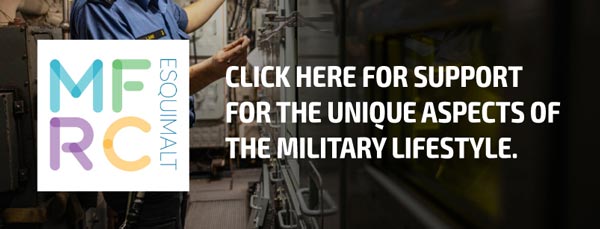
This resource provides information and guidance to Canadian Armed Forces (CAF) members and their families on recognizing and addressing economic abuse. Exploring the topic can be highly sensitive and may evoke a range of emotions in some individuals.
If you need support, assistance is available to you 24/7 through the Family Information Line.
(English and French, free, confidential)
Canada: 1-800-866-4546
International: 00-800-771-17722
Email: FIL-LIF@cfmws.com
Exploring economic abuse
Economic abuse is when someone uses money and resources to control another person. This can happen in families or couples, where one person might stop another from having their own money, from making decisions about spending, or getting a job. They might take away their credit cards, make them ask for money, or keep track of every dollar they spend. This kind of control can make the other person feel trapped.
Economic abuse is often a hidden form of family violence that is difficult to identify because it occurs in the private domain, including between partners or spouses. Many people may not know how common economic abuse is, what it looks like, or the different ways it can happen. For many people, talking about economic abuse can feel taboo, making it even harder to seek help.
Even after a relationship ends, some individuals may continue to face economic abuse from their ex-partner in various ways. It is important to know that there are supports available to you and that you don’t have to face this alone.
How do economic abuse and financial abuse differ?
Financial abuse is often thought of as a form of economic abuse.
Financial abuse is when someone controls another person’s money and financial resources, like taking their money, using their credit cards without permission, or stopping them from having their own bank account.
Economic abuse is broader and includes financial abuse but also covers other ways someone might control another person’s life using resources. Economic abuse can be broken down into three various forms:
Economic control: involves the perpetrator exerting dominance over financial resources, often restricting the survivor’s access to money, bank accounts, or employment. For example, a perpetrator might prevent their partner from having a personal bank account or require them to account for every expenditure, thus limiting their financial autonomy.
Economic exploitation: includes the perpetrator using the survivor’s financial resources for their own benefit, often to the detriment of the survivor. An example of this would be a perpetrator forcing their partner to take out loans or credit cards in their name, only to use the funds for the perpetrator’s personal needs, leaving the survivor in debt.
Economic sabotage: entails actions that deliberately damage the survivor’s ability to maintain financial stability. An example of this is when a perpetrator deliberately causes their partner to miss work or damages their work equipment, thereby jeopardizing their employment and income.
Economic abuse: Who is most at risk?
Economic abuse can affect anyone, although certain groups of people are more likely to experience this type of abuse. It is a deeply gendered issue that affects women from all backgrounds, regions, sexual orientation and income levels. For example, women from marginalized groups, such as Black, racialized and Indigenous women and people from the 2SLGBTQIA+ community, are at a significant higher risk of experiencing economic abuse. These women often face extra challenges because of unfair treatment, discrimination, and a lack of resources.
Economic abuse can also occur within the military community and among military families, which may occur in unique ways due to the distinctive nature of military lifestyle. Frequent relocations, extended or frequent deployments, and the demanding nature of military service can increase financial dependency and isolation, making it easier for one partner to control and manipulate finances.
In the military context, economic abuse might include restricting access to family bank accounts, or preventing a spouse/partner from seeking employment or education.
The stressors associated with military service, such as long separations and the pressures of adapting to new environments, can further complicate the situation, making it difficult for survivors to seek help.
The Intimate Relationships Continuum shows how relationships can change over time, moving from healthy to struggling, to unhealthy, and even to abusive in some cases. The related chart explores how CAF couples manage their finances and shows how economic abuse can appear in different stages of a relationship. If you are unsure about where your relationship stands, consider taking a moment to check out this helpful tool on our Healthy Relationships website. https://cfmws.ca/support-services/health-wellness/healthyrelationships
Understanding the impact of economic abuse
Economic abuse can have severe economic, physical, and emotional impacts. Survivors may find themselves with restricted access to family finances, which can lead to dependency and financial instability. This can make it difficult to manage everyday expenses, save for emergencies, or plan long-term financial goals.
Physically, the stress caused by economic abuse can lead to new or worsen existing health issues, including anxiety, depression and chronic illnesses.
Emotionally, experiencing financial control and manipulation can lower self-esteem and create feelings of helplessness and isolation.
The unique pressures of the military lifestyle, including long or frequent separations and the need to adapt to new environments after a relocation, may make matters worse. This may make it harder for survivors to seek support and regain stability, however there are supports available and more information can be found below.
For more information
http://cfmws.ca/support-services/health-wellness/healthyrelationships/supports-available-to-you















